Did you know that puppies not properly socialized in their first four months are far more likely to develop fear or aggression towards strangers, pets, or even simple noises later in life? Puppy socialization tips are the single most powerful tool pet parents can use to help their furry friends thrive in a complex world. Whether you just brought your new puppy home or want to ensure your dog matures into a well-adjusted companion, diving into socialization early is essential. In this comprehensive guide, you’ll unlock proven techniques to socialize a puppy, overcome common hurdles, and set your pup up for lifelong confidence.
Unlocking the Secret to Well-Adjusted Dogs: Why Puppy Socialization Tips Matter
Puppy socialization is more than just introducing your puppy to new faces; it’s about shaping how they respond to the world for the rest of their lives. Many behavioral issues seen in adult dogs, such as anxiousness or fear-based aggression, often have roots in a lack of positive experiences during the critical socialization period. By following effective puppy socialization tips, you give your dog the best chance to build trust in unfamiliar people, public places, and situations .
For example, a well-socialized pup may stay calm and curious when encountering a bustling dog park or a delivery person at the door, while an undersocialized puppy may react out of fear or confusion. Enriching your puppy’s world through early exposure helps create a resilient companion who can handle car rides, new environments, and family gatherings—all while remaining safe and manageable.
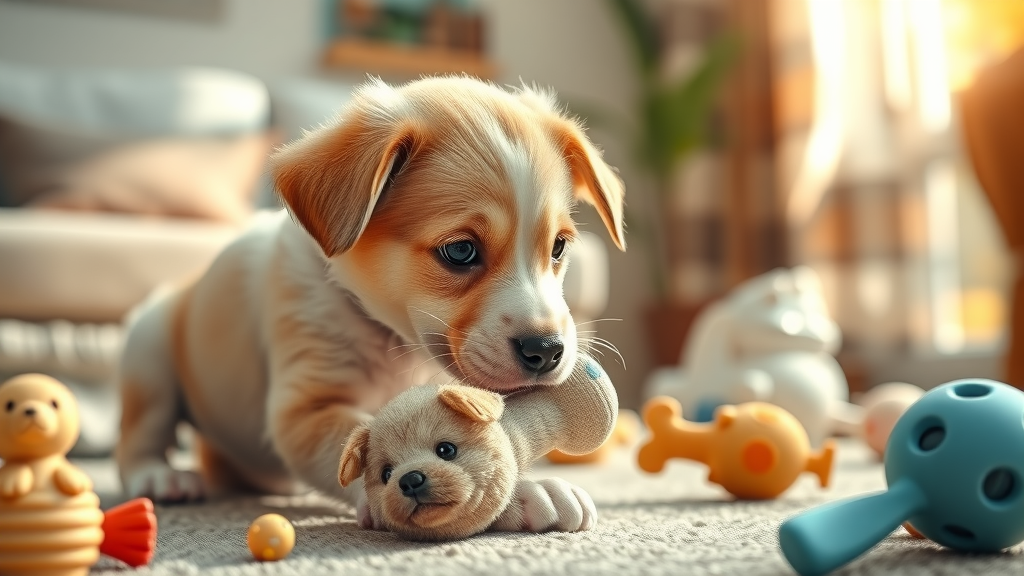
- Discover how puppy socialization tips can prevent future behavioral issues
- Learn the ideal timeline to socialize a puppy effectively
- Explore practical examples for enriching your puppy’s world
- Understand the role of puppy socialization classes
- Get answers to top questions about socializing your pup
Understanding Puppy Socialization Tips: What Every Owner Needs to Know
What is Puppy Socialization and Why is it Crucial?
"Well-socialized puppies grow into confident adult dogs capable of adapting to the diverse world around them."
Socializing your pup means gently introducing them to the wide variety of experiences, sights, sounds, people, and animals they’ll encounter throughout their lives. The foundation built during the puppy socialization period is what enables puppies to become adaptable, unafraid adult dogs. This process helps your puppy learn that new things are positive experiences, not causes for alarm. Socializing isn’t about overwhelming your pup but giving them the opportunity to take in the world at their own pace, especially during the sensitive period when puppies learn fastest.
Puppy socialization tips also address real-world scenarios: vet visits, walks in public places, meeting strangers or other dogs at the dog park, and even handling changes within your own home. By exposing your puppy to different environments and novel stimuli, you can prevent the development of future phobias or unruly behaviors, ensuring transitions into adolescence and adulthood are smooth and stress-free.
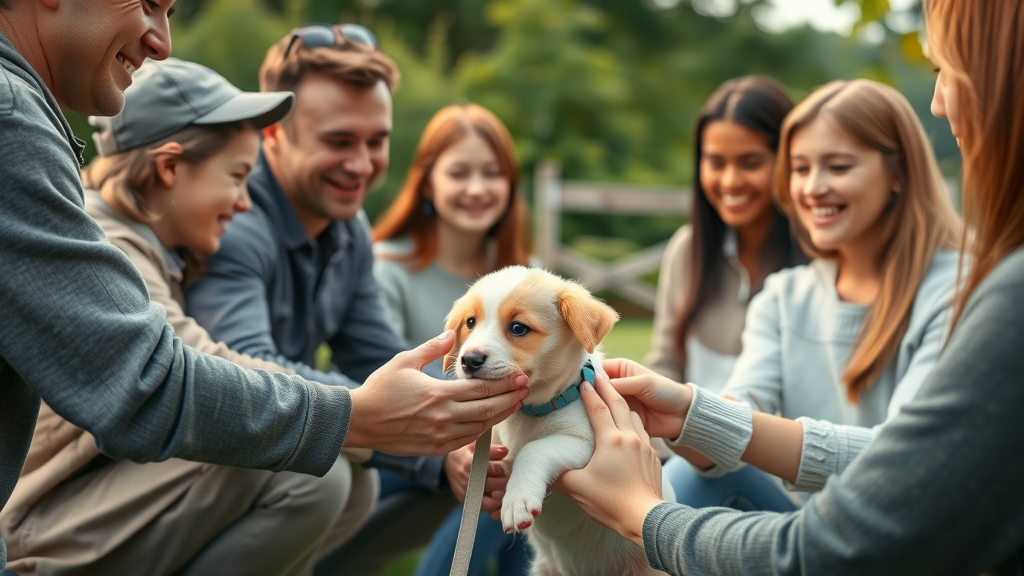
How Puppy Socialization Tips Influence Long-Term Behavior
Modern animal behavior research shows that dogs who lack early socialization are at a much higher risk of developing behavioral issues as adults. Fearfulness, aggression towards unfamiliar people or animals, and anxiety-related behaviors often trace back to a lack of positive exposure during the critical weeks of age. Pet parents who dedicate time to consistent, thoughtful socialization help ensure their pup develops confidence, resiliency, and trust—not just with humans but also with other dogs, loud noises, and novel circumstances.
Socializing your pup from an early age does more than just prevent problems; it actively creates a more enjoyable companion. A dog accustomed to new experiences is easier to manage during travels, moving homes, or encountering unfamiliar people. They are more likely to remain calm during storms, vet visits, or car rides, making life smoother for both dog and owner. Following strong puppy socialization tips means every new situation becomes a positive experience, shaping your dog's ability to adapt as a well-rounded adult dog.
When and How to Socialize a Puppy: Key Timing and Milestones
| Age Range | Recommended Socialization Activities |
|---|---|
| 3-7 weeks | Handling, novel sounds, gentle exposure to people |
| 8-12 weeks | Puppy socialization classes, meeting calm adult dogs |
| 12-16 weeks | Short outings, encounters with older dogs, walking on leash |
The Optimal Age to Socialize a Puppy and the Puppy Socialization Period
The most impressionable phase for puppy socialization occurs between 3 and 16 weeks of age . This sensitive period is when puppies learn most rapidly, absorbing new experiences with curiosity and minimal fear. During this time, positive exposures have the most profound impact, making it crucial to introduce your puppy to a variety of people, other pets, surfaces, sounds, and environments. While puppy socialization tips are valuable at any age, starting within this window offers the greatest long-term benefits.
Puppies not introduced to key stimuli during this sensitive period may grow up cautious or even fearful around unfamiliar people, animals, or situations. Pet parents should take advantage of these early weeks to build strong, positive associations, following expert puppy socialization tips: expose your puppy to gentle handling, car rides, city sounds, and different types of people. The socialization process forms the blueprint for how your puppy interprets the world as an adult dog, making these early experiences truly foundational.
Essential Puppy Socialization Tips for Everyday Environments
- Gradually introduce your puppy to new people, environments, and noises
- Use treats and praise as positive reinforcement
- Practice short, positive exposures frequently
- Supervise all interactions with children and adult dogs
- Keep sessions short—quality over quantity
- Encourage exploration but never force unfamiliar situations
Everyday socialization doesn’t have to be complicated or overwhelming. The most effective puppy socialization tips start with frequent, brief, and positive encounters . Start by introducing your puppy to new household sounds like vacuum cleaners or kitchen timers, using treats and soothing voices to help them make positive associations. Gradually expand your puppy’s experiences: invite a family member they haven’t met, walk on varied surfaces around the neighborhood, or spend time watching passing cars from a safe distance. Always ensure interactions with older dogs or children are carefully supervised to keep every exposure a positive experience.
Remember: forcing your pup into scary situations can be counterproductive. Instead, encourage gentle exploration by observing your puppy’s comfort zones, offering encouragement and praise, and retreating if your pup becomes overwhelmed. Socialization is about fostering curiosity, not pushing boundaries too fast. In this way, your puppy will begin to associate new experiences with safety and fun, laying the foundation for thriving in any public place for years to come.
Socialize a Puppy Safely: Balancing Socialization and Health
Vaccination Considerations During Early Puppy Socialization
One of the biggest worries pet parents face is balancing the risks of disease with the need for early socialization. Puppies are not fully vaccinated until about 16 weeks of age, yet much of the critical socialization period happens before then. The key to safe, effective socialization is controlled exposure: invite fully vaccinated, healthy adult dogs to meet your puppy at home, visit friends, or hold one-on-one puppy playdates indoors. Avoid high-risk environments like dog parks or busy public places until your vet gives the green light.
Your veterinarian is the best source for tailored advice: talk to your vet about safe ways to expose your puppy to new experiences while protecting their health . Many modern puppy socialization classes require up-to-date vaccination records and provide sanitized environments. With the right precautions, you can socialize your pup while minimizing health risks, ensuring early positive experiences without endangering your puppy’s safety.
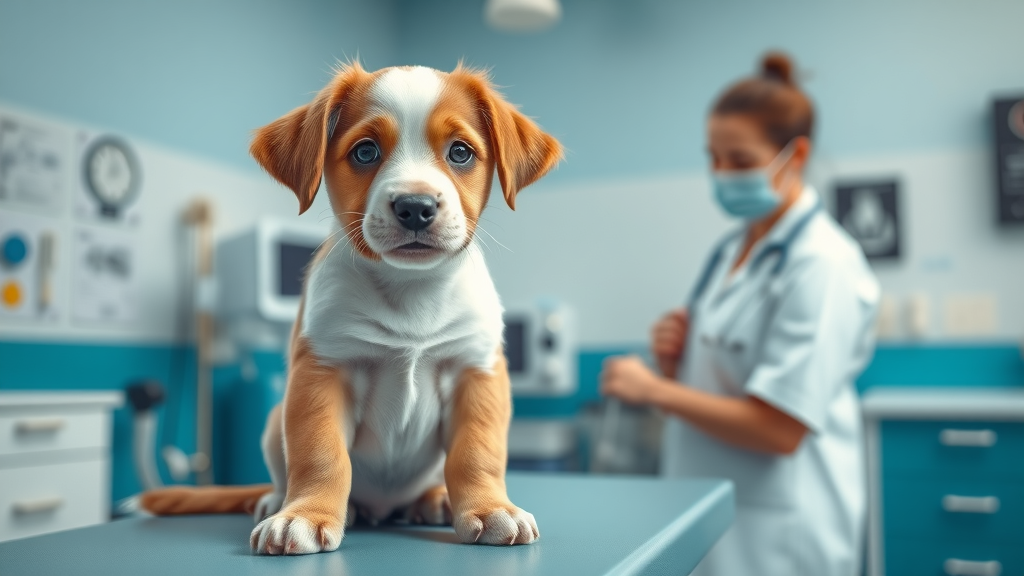
The Power of Puppy Socialization Classes and Socialization Classes
What to Expect in a Puppy Socialization Class
A well-designed puppy socialization class offers your pup safe exposure to other puppies, people, and new environments—all under the guidance of experienced trainers. These classes aren’t just about playtime; they introduce your dog to unfamiliar people, controlled dog-dog interactions, novel sounds, and gentle handling. Pet parents learn to reinforce good behavior and read dog body language, making socializing your pup less stressful for everyone involved. Many classes also include time for supervised off-leash play, introducing your puppy to appropriate doggie manners without overwhelming them.
Participants in puppy socialization classes are usually asked to provide vaccination records, ensuring a safe space for all. Trainers will help you with techniques for positive reinforcement, managing shy or bold personalities, and introducing puppies to city noises or grooming tools. Most importantly, these sessions provide the structure and support that first-time dog owners need, taking the mystery and worry out of early socialization.
Are Socialization Classes Right for Every Puppy?
While puppy socialization classes are beneficial for most pups, they may not be perfect for every personality or background. Extremely timid, fearful, or unsocial adult dogs may find even a gentle class overwhelming, and some older dogs or rescues may do better with one-on-one sessions. The goal of socialization classes is always positive experiences—though the structure or pace can be adjusted to suit each puppy’s needs.
Consult with your trainer or veterinarian when deciding whether group classes, private sessions, or at-home socialization activities are best. For most healthy puppies in the key sensitive period, regular socialization classes offer a fun, safe environment for growing confidence, learning bite inhibition, and making new friends. But always watch your puppy’s comfort level and progress; never force your pup to participate if they seem frightened or stressed.
Addressing Challenges: Older Dogs and Adult Dog Socialization
Overcoming Common Hurdles When You Socialize Your Pup Later in Life
Sometimes, a dog’s sensitive period may have passed before proper socialization begins. Socializing an older dog or adult dog is a different process, because older dogs may have established fears or negative associations that take time to reverse. The key tips are patience, consistency, and rewarding calm, curious behavior. Exposing your older dog to new sights, other pets, or city sounds must be done in smaller steps, with extra encouragement and gentle praise. Growth is possible at any age, but ‘force your pup’ methods should be avoided, as these can trigger more fear or reactivity.
Older rescue dogs and some adult dogs may need professional guidance from a credentialed trainer or animal behavior specialist. Scheduling brief, safe introductions to new people or calm older dogs, using treats and play, and steering clear of chaotic public places initially can help adult dogs gradually trust the world around them. Overcoming these common hurdles is a testament to the power of positive experiences; adult dog socialization just demands more patience and understanding.
Tips for Socializing Older Dogs and Adult Dogs
Consistency and positive associations are your two best tools for socializing older dogs. Focus on regular exposure to new places, sounds, or visitors in very short, enjoyable increments—think one-on-one introductions, leashed walks with a trusted friend, or brief sessions in empty public places. Use high-value treats, games, and gentle praise to reinforce bravery and calm behavior. Never scold or punish fearful reactions ; instead, reward even small signs of curiosity.
Enlist the help of patient family members to introduce your dog to positive experiences, and respect your older dog’s natural pace. Each successful outing builds your dog’s courage and resets their expectations. With time, commitment, and the right puppy socialization tips—even older dogs can learn to trust and adapt to new experiences.
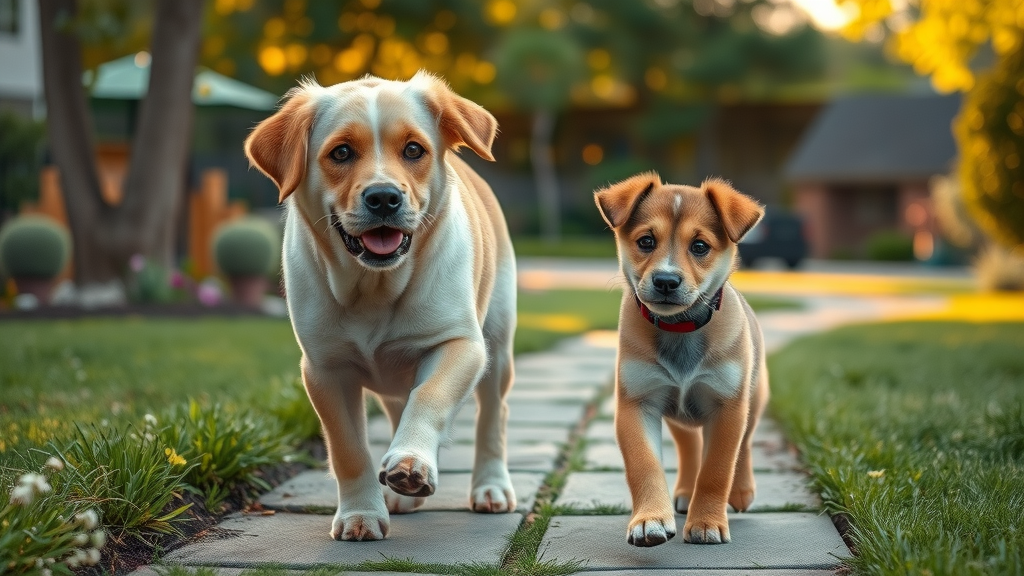
Practical Puppy Socialization Tips for Real-World Scenarios
- Introducing your puppy to new surfaces and textures
- Incorporating city sounds and traffic
- Meeting delivery people, postal workers, and strangers
- Taking safe trips to pet-friendly stores
To fully prepare your puppy for adult life, it’s important to think beyond your home or yard. Let your puppy explore different surfaces: tile, carpet, gravel, grass, or even gently walking on a wobbly board. These puppy socialization tips increase their confidence with unexpected textures. Next, safely expose your puppy to city sounds—traffic, horns, sirens—from a comfortable distance, using treats and play to make these exposures positive experiences. Every public place your puppy visits expands their comfort zone, from quiet trips to a pet-friendly café to brief walks near a school at pick-up time.
Encourage friendly encounters with delivery people, neighbors, or postal workers so your puppy learns to trust unfamiliar people. Short car rides, observing street activity, or strolls through pet stores allow your puppy to practice calm, brave behavior. Use these outings as socialization lessons, always working at your individual puppy’s pace and comfort.

Measuring Progress: Signs of Success with Your Puppy Socialization Efforts
How to Recognize a Well-Socialized Puppy
A well-socialized puppy is easy to spot. They approach novel situations with curiosity, not anxiety. You’ll notice a relaxed posture, calm tail wags, and willingness to greet unfamiliar people or animals. Positive experiences have taught them to trust the world , resulting in confidence around crowds, adaptability in new environments, and appropriate behavior with unfamiliar people and dogs.
In addition to their outgoing manner, well-socialized puppies bounce back quickly from startling noises, enjoy vet visits or car rides, and recover easily from brief setbacks. Their playful attitude persists across a broad range of scenarios, providing peace of mind for pet parents. These subtle cues are the real rewards of early, thoughtful socialization .
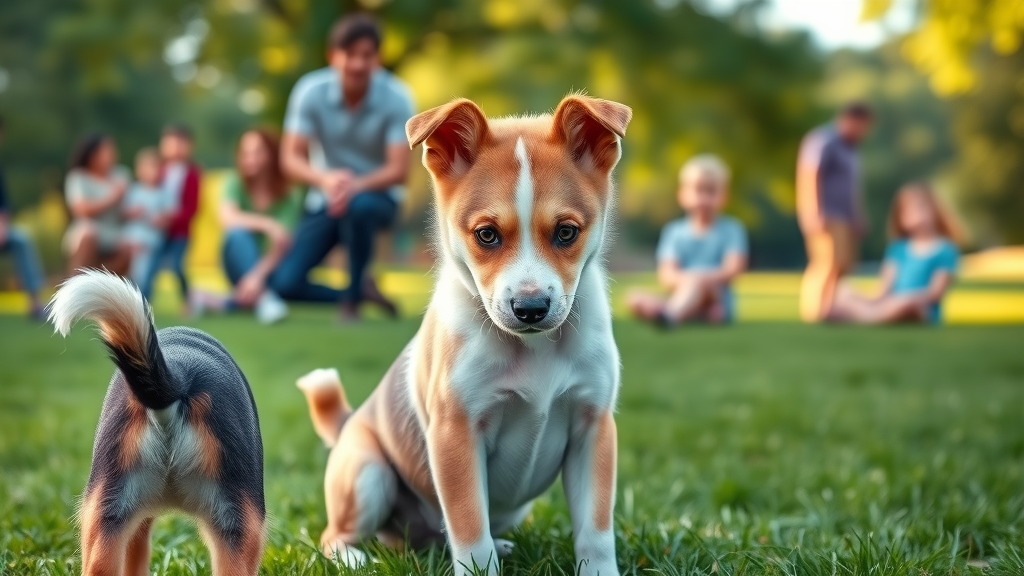
People Also Ask: What Age Is Best to Socialize a Puppy?
Answer: Puppies experience their most impressionable socialization period between 3 and 16 weeks of age, making this the best time to start introducing them safely to a wide range of people, animals, and environments.
People Also Ask: What Is the 7 7 7 Rule for Dogs?
Answer: The 7 7 7 rule encourages exposing puppies to 7 new people, 7 new places, and 7 new experiences each week—promoting confidence and adaptability.
People Also Ask: What Is the Puppy 1/2 Rule?
Answer: The puppy 1/2 rule states that puppies can handle social interactions or playtime equal to half their age in months in minutes (e.g., a 2-month-old can do 1 minute at a time)—keeping socialization positive, short, and not overwhelming.
People Also Ask: What Is the Socialization Period of a Puppy?
Answer: The critical socialization period of a puppy occurs from 3 to about 14 weeks of age; during this time, puppies most easily form positive habits around new stimuli.
Frequently Asked Questions: Puppy Socialization Tips
- How do I introduce my puppy to other dogs safely? Begin introductions with calm, fully vaccinated adult dogs in a neutral, enclosed area. Keep both animals on a loose leash, allowing them to sniff and interact under supervision. Use treats and gentle praise to reward relaxed behavior, withdrawing if either dog appears stressed or fearful. Over time, gradually increase the length and complexity of their interactions.
- What should I do if my puppy is scared during socialization? If your puppy becomes frightened, calmly remove them from the situation and offer comfort. Avoid scolding or forcing your puppy. Instead, try reintroducing the same scenario at a later time, from a greater distance, using treats, toys, and praise to build self-confidence. Small, repeated positive experiences are key to overcoming fear.
- Are puppy socialization classes necessary for every breed? While all puppies benefit from socialization, some breeds may be naturally more confident or people-oriented, requiring less structured exposure. However, puppy socialization classes offer valuable practice and positive experiences for nearly every puppy, especially for first-time dog owners. Consult your vet or a professional trainer for breed-specific advice.
- How can I reinforce good behavior after socialization sessions? Immediately reward your puppy for calm, curious, or brave behavior using treats, play, and praise. Consistently reinforce what you want to see—sitting politely, greeting gently, ignoring distractions—and end each session on a positive note. With repetition, your puppy will associate new situations with positive outcomes.
Key Insights on Puppy Socialization Tips for Lifelong Confidence
Effective puppy socialization tips provide the foundation for a confident, happy dog who handles life’s surprises with ease. The key is to start early, keep experiences positive, and progress at your puppy’s own pace, ensuring that every encounter builds trust and adaptability. For pet parents, the investment in socializing your pup brings lifelong benefits: a well-mannered, resilient companion, ready for every adventure.
Take the Next Step: Apply These Puppy Socialization Tips Today for Happy, Well-Adjusted Companions
Start implementing these puppy socialization tips now—your efforts create a world of positive experiences that last a lifetime. Begin today and help your puppy discover all the wonderful things the world has to offer!
To further enhance your understanding of puppy socialization, consider exploring the following resources:
-
The American Kennel Club’s article, “ Puppy Socialization: Why, When, and How to Do It Right ,” provides comprehensive insights into the importance of early socialization and practical steps to ensure your puppy grows into a well-adjusted adult dog.
-
The San Francisco SPCA offers a detailed guide titled “ Puppy Socialization ,” which outlines effective techniques and considerations for safely introducing your puppy to new experiences and environments.
These resources offer valuable information to help you implement effective socialization strategies, ensuring your puppy develops confidence and adaptability in various situations.
 Add Row
Add Row  Add
Add 


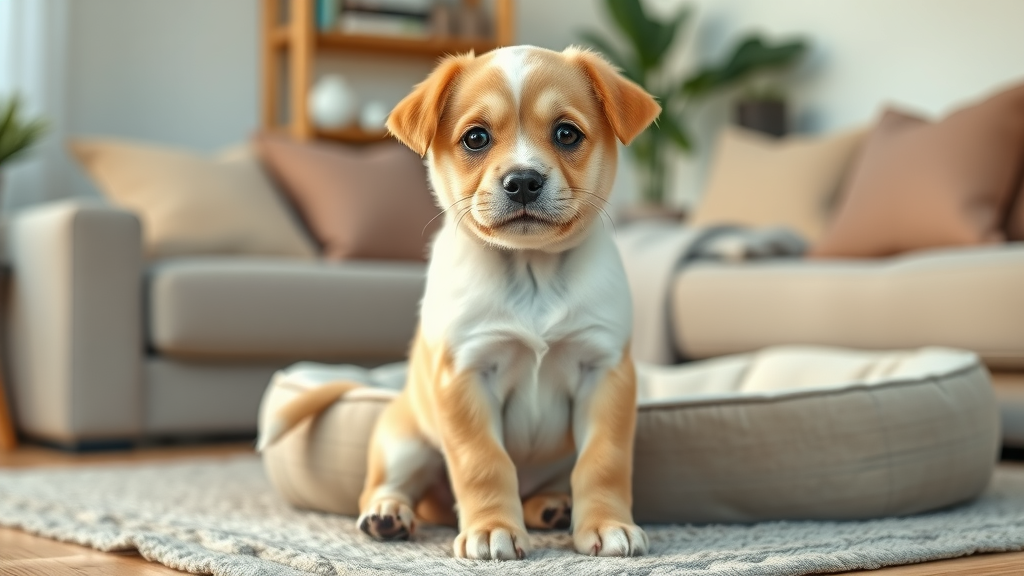
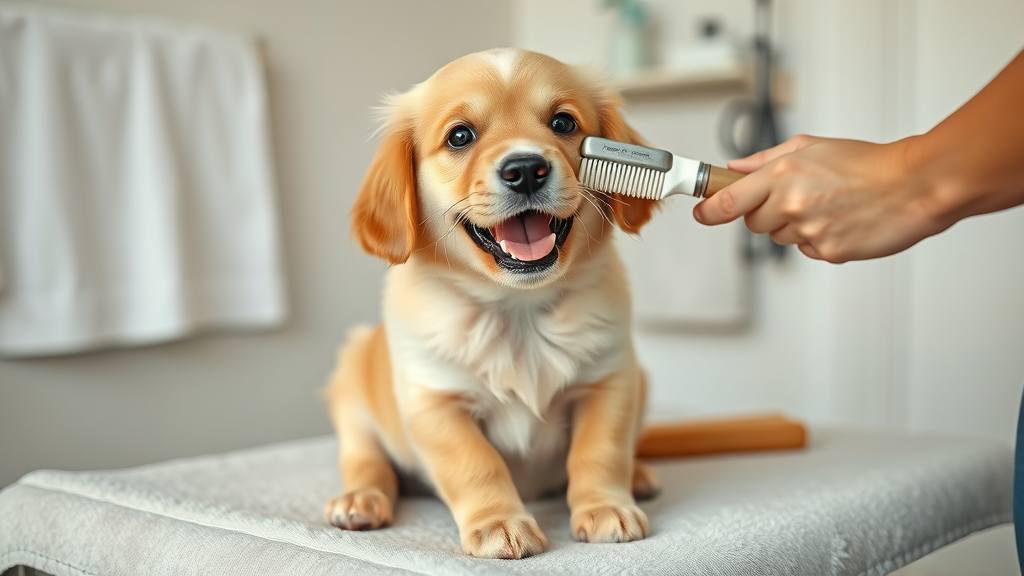
Write A Comment